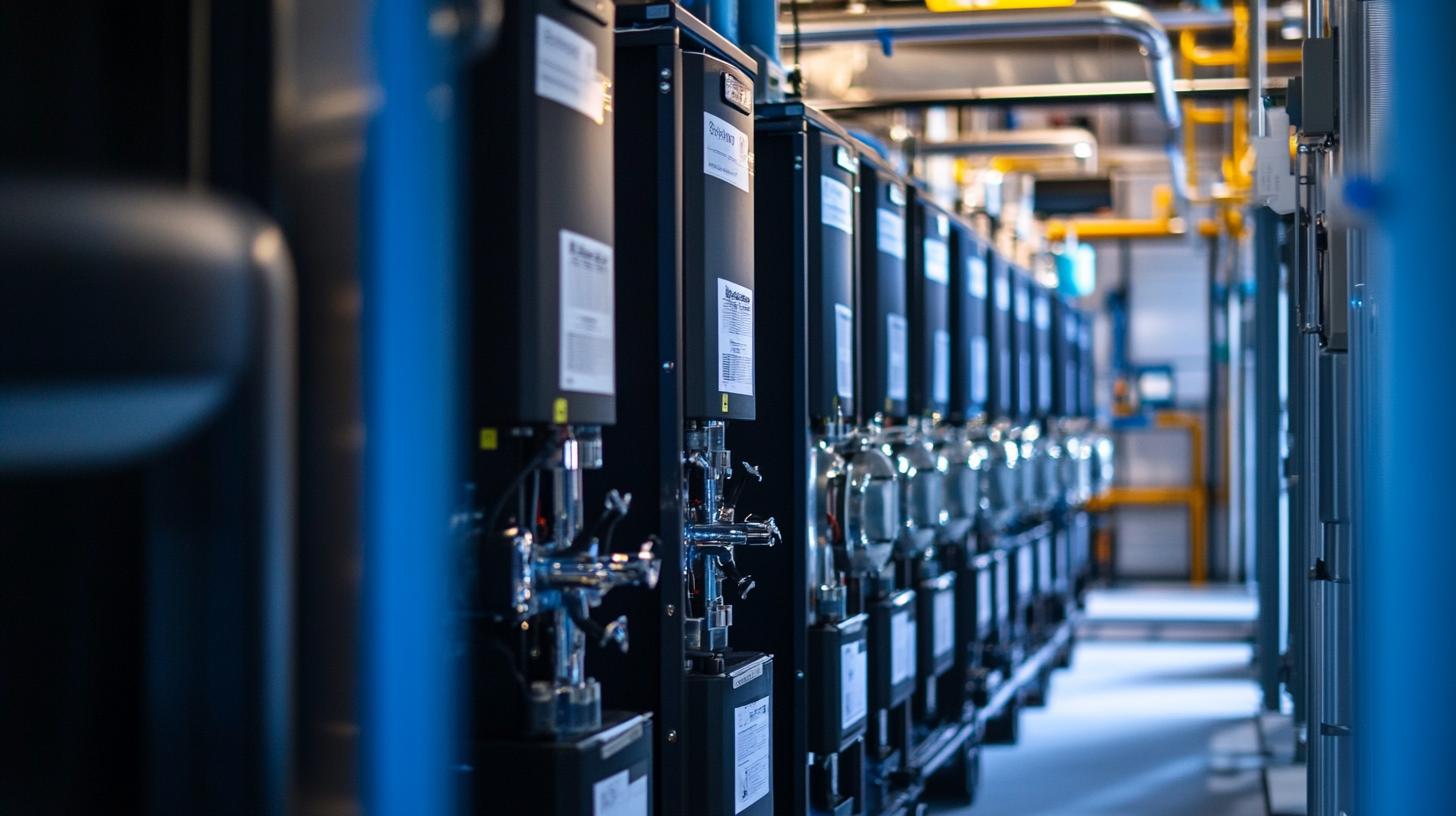Ducon Infratechnologies Limited recently made a significant mark at the GH2 Summit in Delhi, demonstrating cutting-edge technology in partnership with DeltaVision GmbH. At the Yashobhoomi Convention Center, Ducon presented its advanced fluid control systems designed for hydrogen mobility, storage, and safety.
The event was supported by the Ministry of Heavy Industries and organized by the Sustainable Development Leaders Council (SDLC), emphasizing India’s commitment to advancing its hydrogen economy. Ducon’s participation aligns with its mission to support India’s green hydrogen goals.
India aims to become a global leader in green hydrogen, targeting the production of 5 million metric tons annually by 2030, as advocated by Prime Minister Narendra Modi. The National Green Hydrogen Mission, launched in 2023, has already set ambitious targets with tenders released for substantial hydrogen and ammonia production, although infrastructure for transport and storage remains a challenge.
The summit, attended by over 3,500 delegates, underscored the difficulties of hydrogen transportation, citing its corrosive nature and the need for specialized devices like valves and regulators, which are not yet affordable within the Indian market.
Ducon’s state-of-the-art solutions, including solenoid valves and pressure regulators, cater to high-pressure environments, addressing these challenges. These components support safer and more efficient hydrogen transportation, aligning with India’s initiatives like hydrogen transport corridors and pilot projects for hydrogen-powered modes of transport.
About Ducon Infratechnologies Limited: Ducon is a leader in clean coal technology, providing innovative solutions for energy needs while focusing on environmental sustainability. Their divisional expertise spans fossil fuel clean technologies, bulk material handling, and infrastructure systems, backed by continuous investments in cleantech innovation.
Hydrogen Economy: Transforming Lives and Communities
The rise of the hydrogen economy is poised to reshape how people, communities, and countries interact with energy, promising a cleaner, more sustainable future. As nations grapple with the urgent need to transition away from fossil fuels, hydrogen emerges as a pivotal player. But how exactly does this affect daily lives and the socio-economic fabric globally?
The Role of Hydrogen in Reducing Carbon Footprint
Hydrogen, particularly green hydrogen produced via renewable energy, offers a zero-emission alternative to traditional fossil fuels. This transition not only curbs greenhouse gas emissions but also improves air quality, directly impacting public health. Studies estimate that embracing hydrogen in sectors like transportation, heating, and industrial processes could significantly decrease pollution-related diseases, enhancing life expectancy.
Economic Opportunities and Challenges
Embracing the hydrogen economy opens up vast economic opportunities. For developing countries, in particular, it promises energy independence and potential revenue streams through hydrogen exports. In India, efforts such as the National Green Hydrogen Mission are already underway, aiming to tap into this potential. However, challenges remain, including high production costs and the need for substantial infrastructure investments. Balancing these factors is crucial for sustainable growth.
Communities moving towards hydrogen-based solutions can expect job creation in new fields—ranging from engineering to maintenance and research roles. It could help revitalize local economies, especially in regions transitioning away from coal and oil industries. Conversely, there are significant upfront costs and potential socio-economic disruptions during the transition phase that must be addressed through thoughtful policy planning and support systems.
Technological Advances and Safety Concerns
The advancement in safe hydrogen technologies, as demonstrated by companies like Ducon Infratechnologies Limited, plays a crucial role in the hydrogen economy’s success. By developing systems such as advanced valves and pressure regulators, these technologies ensure safer hydrogen storage and transportation, crucial for widespread adoption.
However, safety remains a nuanced topic. Hydrogen is both highly flammable and diffuse, raising concerns about leaks and explosions. Thus, communities must invest in robust safety frameworks and education to build trust and optimize the use of hydrogen technologies.
International Collaboration and Energy Security
Hydrogen’s potential extends beyond national borders. Countries are entering strategic alliances to innovate and invest in hydrogen technologies collectively. This international collaboration enhances energy security, reducing dependency on geopolitical-sensitive oil and gas supplies. By creating a global hydrogen market, nations not only ensure stable energy supplies but also work towards a common goal of sustainable development.
Controversies Surrounding Hydrogen Utilization
Despite its promise, the hydrogen economy is not without its critics. Concerns around “blue hydrogen,” which involves natural gas and might not be as clean as its label suggests, highlight the complexities of hydrogen production. Moreover, debates ensue around water usage for hydrogen production, as water-scarce regions face potential resource conflicts.
The path to a hydrogen economy involves navigating complex challenges while seizing unparalleled environmental and economic opportunities. As nations like India forge ahead, supported by technological innovators, the promise of a cleaner, sustainable future becomes more tangible.
For further exploration on hydrogen energy and its global implications, consider visiting these resources:
Hydrogen Europe,
International Energy Agency, and
U.S. Department of Energy.












